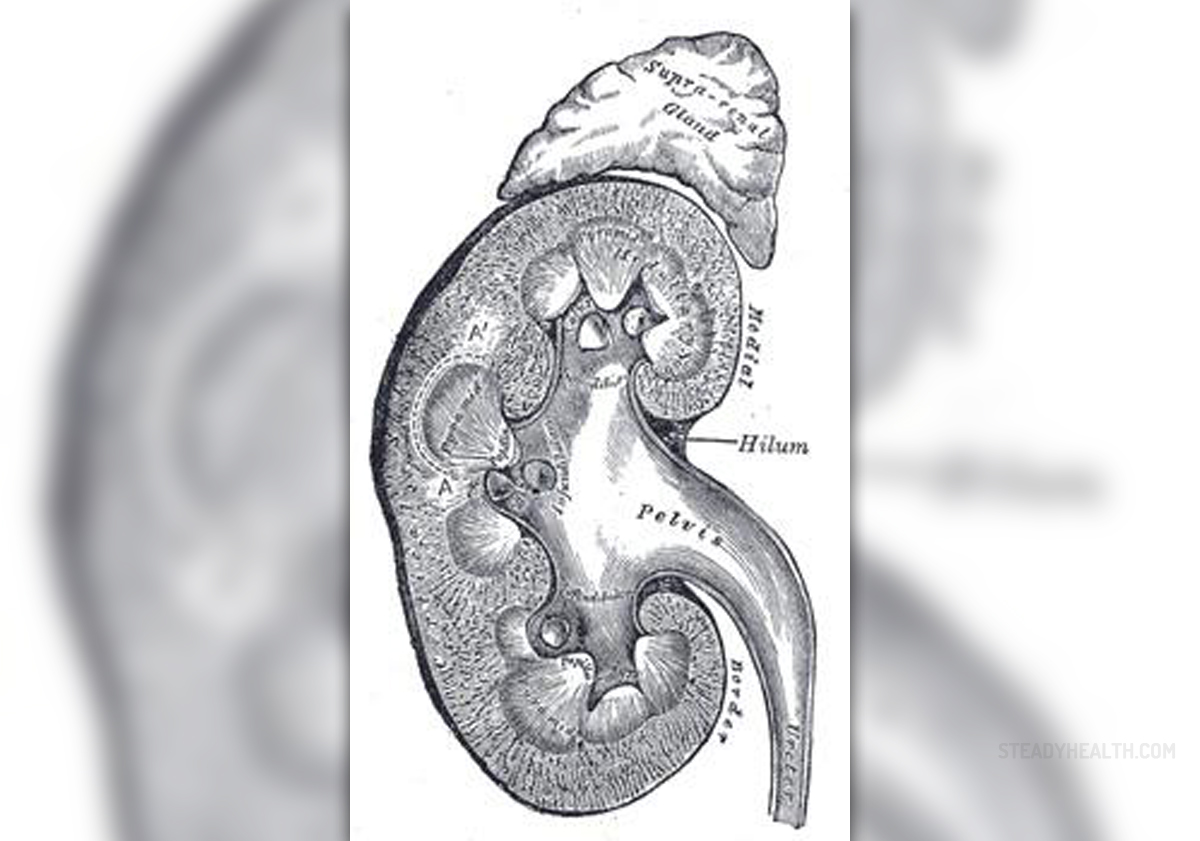
Kidney infection, also known as pyelonephritis, is an ascending urinary tract infection. It may have different levels of severity, starting from very mild infection that may resolve on its own, to severe infection that may even result in sepsis, which is a potentially deadly medical condition. Sepsis is characterized by fever, an increased heart rate, very rapid berating and decreased blood pressure. Severe kidney infection is, therefore, distinguished from a common kidney infection, and known under the name urosepsis. Normally, kidney infection manifests with painful voiding of urine, abdominal pain and tenderness of the bladder area. The pain may often radiate to the back of the affected side. In many cases, patients may experience fever and shivering while temperature rises, vomiting and headaches. Urinary tract infections are very common, and they affect almost 40% of women and about 10% of men, at some point in their lives. These infections are also frequent in children and in patients with the compromised immune system. Therefore, it is important to understand what can cause the kidney infections and how to prevent it from happening.Causes of kidney infections
In most of the cases, bacteria that invade urine cause kidney infections. Urine is normally sterile in a healthy body. In most of the cases, a bacterium that causes kidney infections invades the urinary system through the vagina, anus and the skin. The bacteria normally reach the urine through the urethra. For this reason, women are at increased risk to kidney infections than men are, since the women’s urethra is much shorter compared to men.
Another common way of getting into contact with bacteria is during the sexual intercourse. Women are again at the increased risk since the bacteria reaches from outside the vagina to the urinary system through the urethra.
Having kidney stones can also increase the risk of kidney infections, since it causes partial or complete obstruction to the flow of urine and provokes an infection. The similar thing also happens during the pregnancy, when the increased pressure on the ureters comes from the enlarged uterus.
Prevention of kidney infection
The best way to prevent the infection from happening is to keep the kidneys working all the time. If a person drinks a lot of water, it will help to flush away the bacteria from the body. Frequent urination is also important and people are generally advised not to hold it back. Cleaning the genital and anal area is also very important. However, people are advised to wash the skin around the vagina and anus carefully and gently, using the delicate soaps. Women should avoid using any deodorants, sprays or douches in the genital area. Another good advice is to empty the bladder after the sexual intercourse, and thus help to remove bacteria from the urethra.

















Your thoughts on this
Loading...